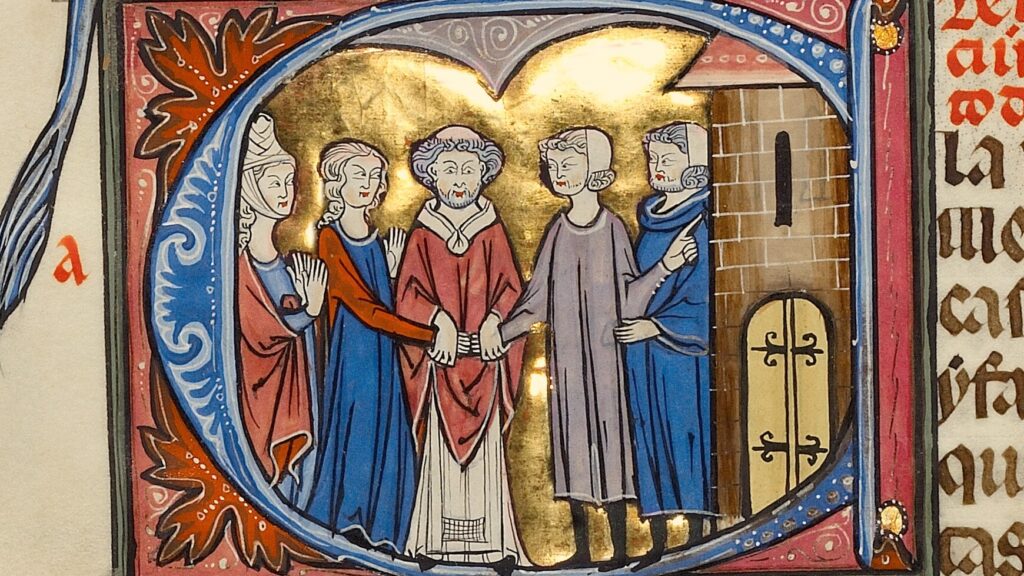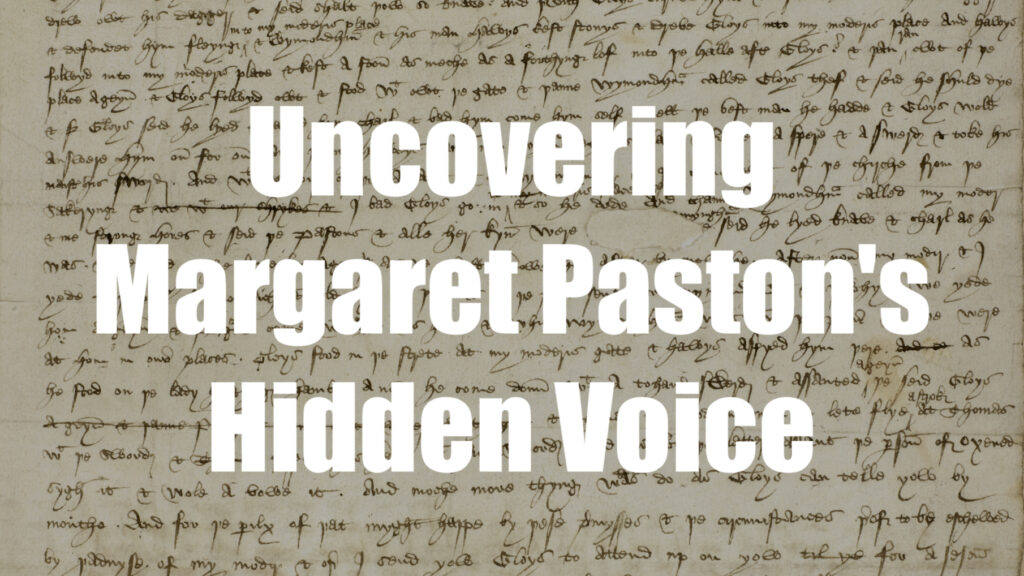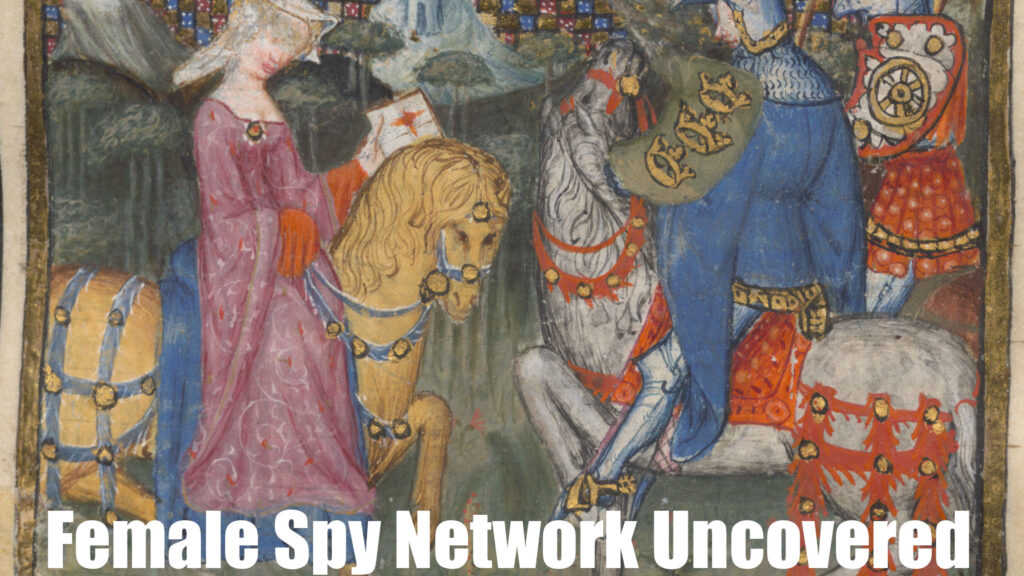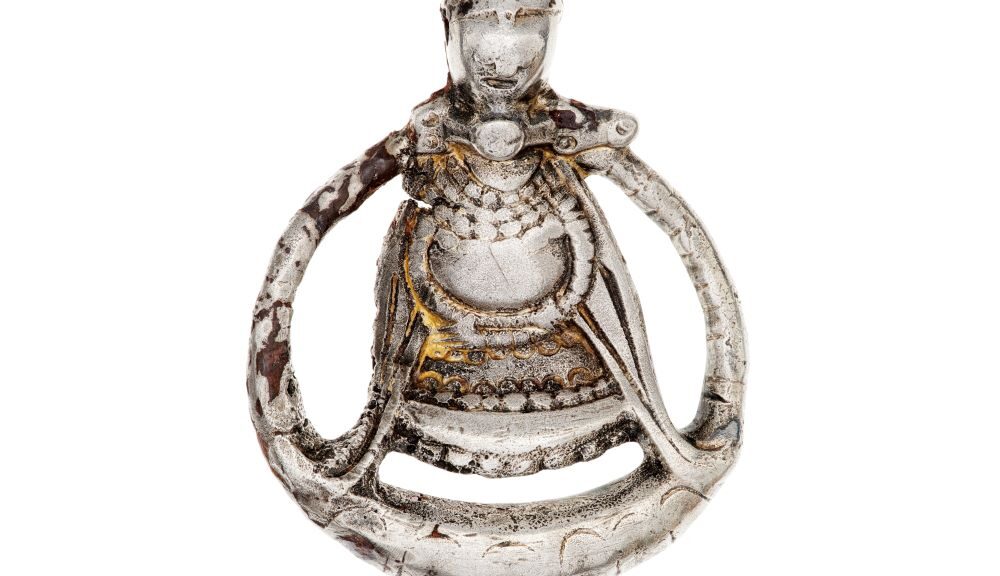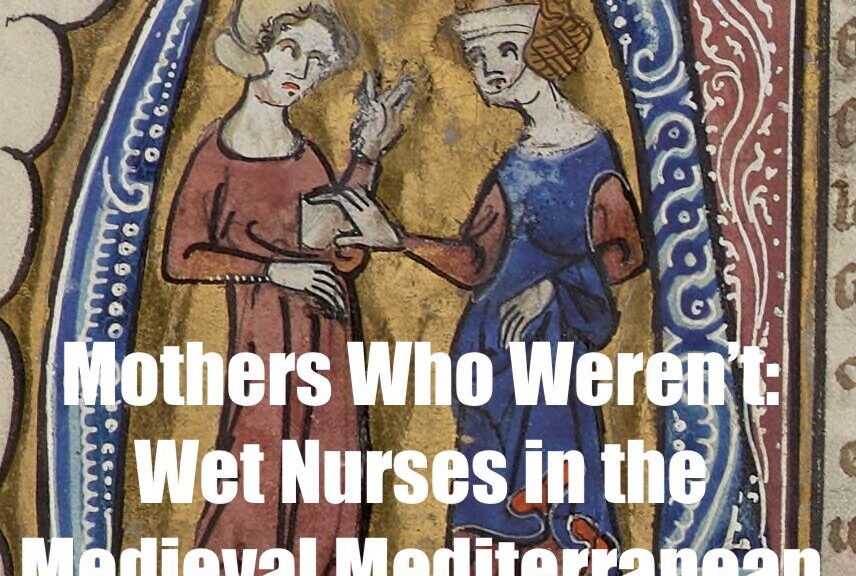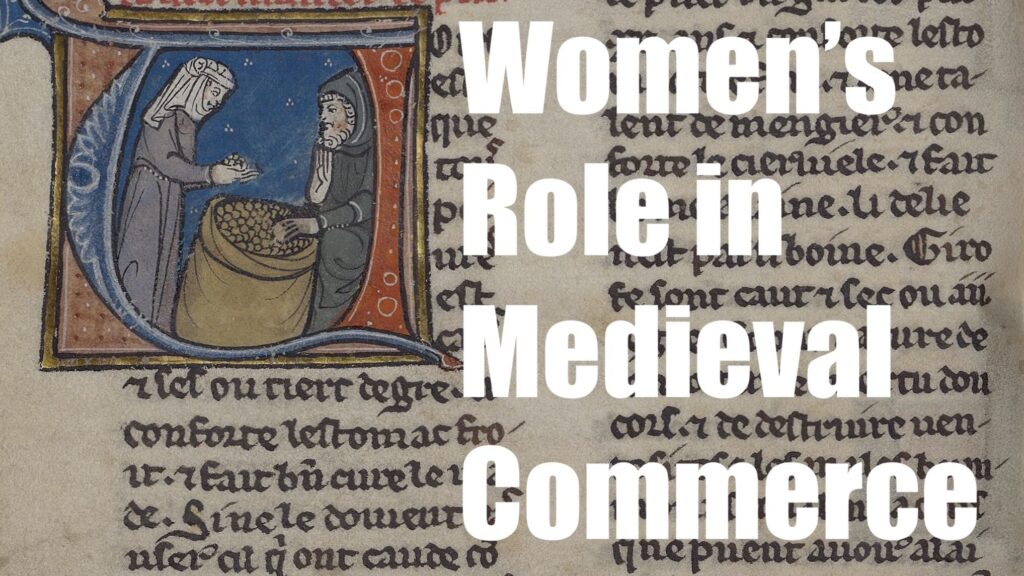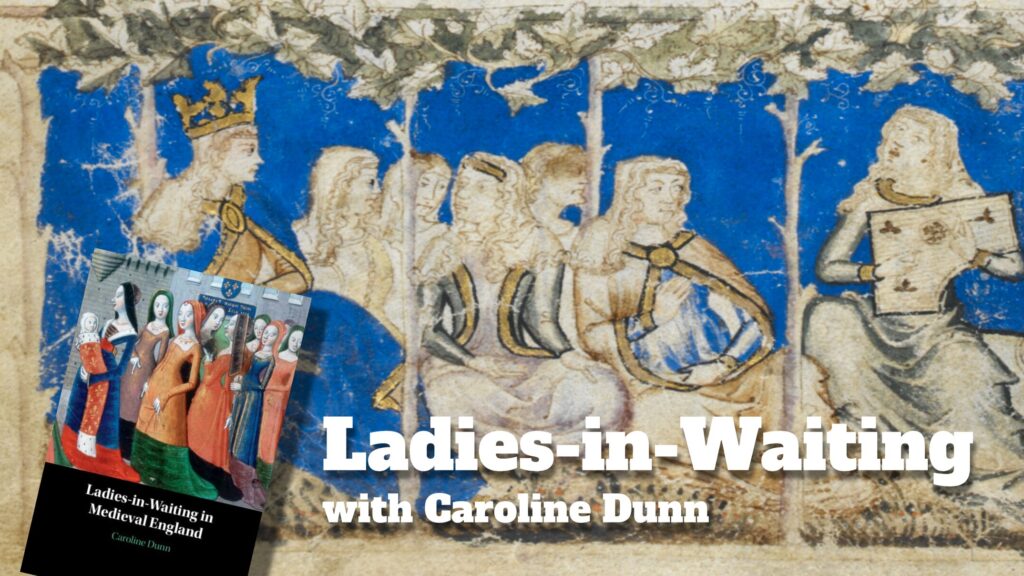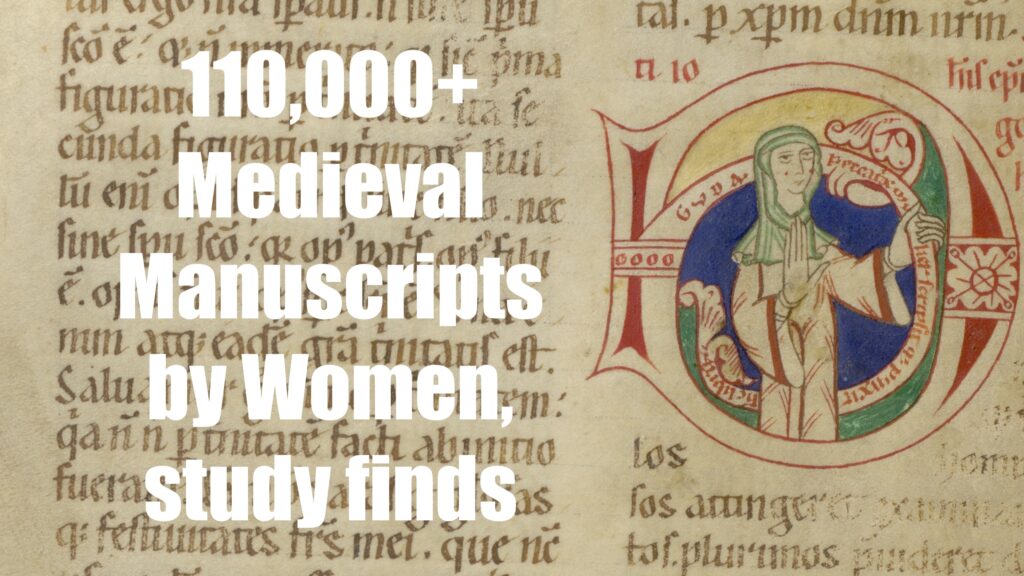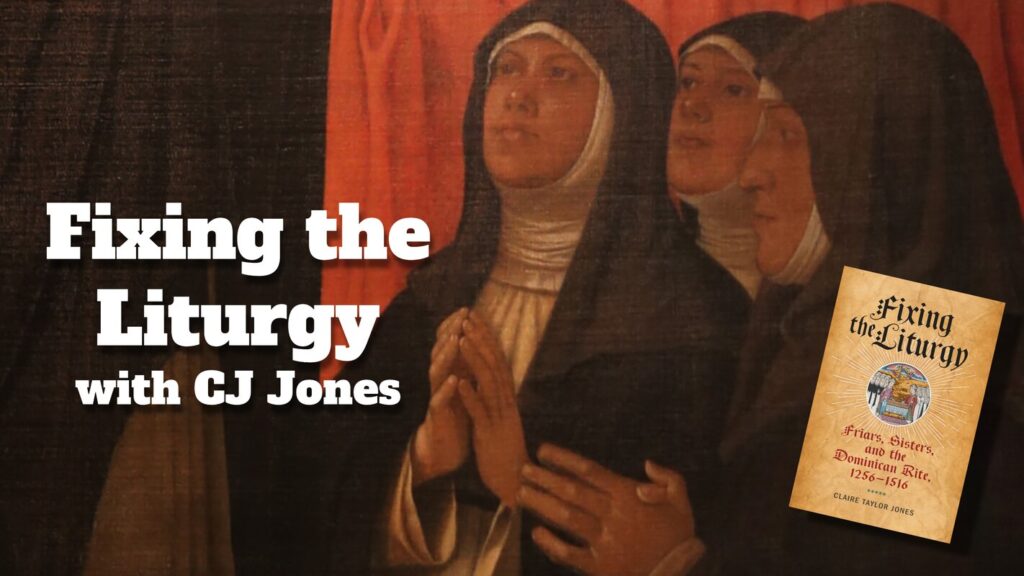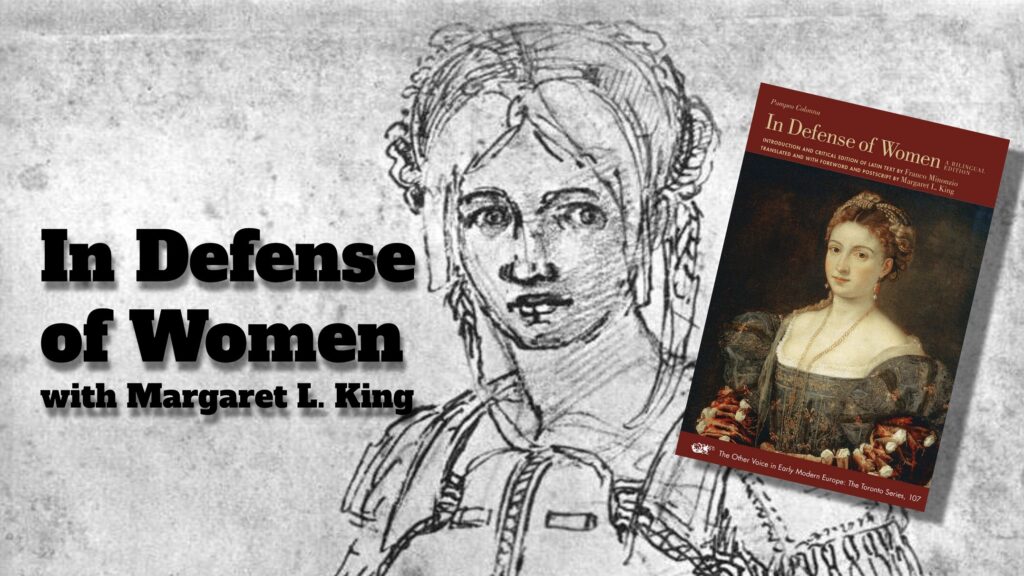When the Groom Paid the Dowry: New Study Rethinks Marriage in Medieval Catalonia
A new study reveals that in 13th- and 14th-century Catalonia, some grooms brought dowries to their brides, challenging long-held assumptions about gender and wealth in medieval marriage
New Medieval Books: Balthild of Francia
In the seventh century, Balthild rose from servitude to become queen of Neustria and Burgundy through her marriage to Clovis II. Following his death, she served as queen regent for their son, Chlothar III, and earned a reputation as a capable and reform-minded ruler—particularly noted for her efforts to end the practice of slavery. This book explores her remarkable life and legacy.
Uncovering Margaret Paston’s Hidden Voice: How Forensic Linguistics Revealed a Medieval Woman’s Authentic Words Through 500-Year-Old Letters
Using computational analysis to solve a 15th-century mystery: Did scribes silence Margaret Paston’s true voice?
Female Spy Network Uncovered in Medieval Ypres, Study Finds
New research uncovers a hidden network of female spies and messengers in medieval Ypres, revealing how women played a crucial role in wartime intelligence during the Flemish revolt against Maximilian of Austria.
New Medieval Books: Laywomen and the Crusade in England, 1150-1300
The Crusades enjoyed widespread support in Western Europe, and efforts on the home front were focused on mobilizing fighters for the Holy Land. This book explores the role of women in England in encouraging men to take up the Cross.
Pregnancy and Power in the Viking Age: New Study Reveals Surprising Roles for Expectant Women
A new study uncovers how pregnant women in Viking society were imagined not only as mothers, but sometimes as warriors.
Mothers Who Weren’t: Wet Nurses in the Medieval Mediterranean
Explore the complex and often harsh realities of wet nursing in the Middle Ages, from slave contracts to moral expectations—revealing how “mothers who weren’t” shaped medieval childhood and society.
The Hidden Financiers: Women’s Role in Medieval Commerce
Discover how medieval women—noblewomen, abbesses, and merchants—played vital roles in managing estates, running businesses, and shaping the economic life of the Middle Ages.
New Medieval Books: The Queens and Royal Women of Sweden, c. 970–1330
Over thirty Swedish queens are profiled in this book, the first major study of royal women in Sweden between the 10th and 14th centuries. It offers new insights into the evolution of medieval queenship.
What Medieval Women Read
Explore the private libraries of Marie de Berry and Jeanne d’Artois to discover what medieval women read. Their collections reveal the intellectual, devotional, and medical interests of noblewomen in the Late Middle Ages.
Medieval Ladies-in-Waiting with Caroline Dunn
This week on The Medieval Podcast, Danièle speaks with Caroline Dunn about the lives of ladies in waiting.
Lucrezia Borgia’s Life in Ferrara: Marriage, Intrigue, and Scandal
In 1500, Lucrezia Borgia found herself once again a pawn in the ruthless game of power and politics. With two failed marriages behind her—one ending in murder—she was at the centre of a marriage negotiation that would test the strength of two powerful families: the Borgias and the Estes of Ferrara.
Over 110,000 Medieval Manuscripts May Have Been Copied by Women
A new study reveals medieval women copied over 110,000 manuscripts—far more than once believed.
Inside Eleanor de Montfort’s Lavish Medieval Wardrobe
In the 13th century, noblewomen like Eleanor de Montfort used fashion to display power, status, and wealth. From rich wool and fine linen to opulent furs and intricate accessories, her medieval wardrobe was a statement of prestige and influence.
25 Medieval Women Who Ruled
Medieval history is filled with powerful women who ruled as queens, empresses, and sultanas, shaping kingdoms and empires despite the challenges they faced. From warrior rulers to master diplomats, these 25 medieval women defied expectations and left a lasting impact on history.
New Medieval Books: What is Better than a Good Woman?
Alice Chaucer may not have come from nobility, but through a series of marriages she was able to build herself into a powerful figure in 15th-century England. This biography tells her story.
Dowager Queens of Korea with Alban Schmid – The Medieval Podcast, Episode 275
Though they’re often overlooked, the dowager queens of Korea were the one of the most powerful legitimizing forces behind the throne. This week, Danièle speaks with Alban Schmid about how Korea was ruled in the late Middle Ages, its relationship to Ming China, and the power wielded by the women at the top.
New Medieval Books: Women and the Reformations
From queens like Elizabeth I to mystics such as Teresa of Ávila, women held pivotal roles in the religious struggles that shaped Christianity during the late Middle Ages and Early Modern period. This book examines the Reformation and Counter Reformation through several leading female figures, both within and outside of Europe.
New Medieval Books: Medieval Women and Urban Justice
What can medieval court records reveal about the lives of women? This book examines the legal disputes involving women in three English towns, uncovering their roles in cases ranging from debts and trade regulations to local trespass laws and public disorder.
Fixing the Liturgy with CJ Jones – The Medieval Podcast, Episode 272
This week on The Medieval Podcast, Danièle speaks with CJ Jones about Dominican nuns, their theological sophistication, and how left their own unique mark on the Middle Ages.
In Defense of Women with Margaret L. King – The Medieval Podcast, Episode 270
This week on The Medieval Podcast, Danièle speaks with Margaret L. King about Renaissance man Pompeo Colonna, why he’s writing in defense of women, and how he crafts his argument.
New Medieval Books: Poet, Mystic, Widow, Wife
This book offers an insightful exploration of the lives of women in medieval Western Europe, delving into the stories of remarkable figures like Marie de France, Julian of Norwich, Christine de Pizan, and Margery Kempe.
French women had more power in the Middle Ages than after the Revolution
The Middle Ages were not all about tyrannical rulers and power struggles. Cooperation, compromise, and women in power were also common, according to a historian at the University of Oslo.
Why Writing Women Back into History Matters
Rediscovering remarkable historical figures such as the Birka Warrior Woman, Hildegard of Bingen, and King Jadwiga offers a fresh perspective to understand an era often dismissed as ‘nasty, brutish, and short’.
New Medieval Books: Early English Queens, 850-1000
A look at queenship in early medieval England, this book focuses on three women: Æthelflæd, Lady of the Mercians, Eadgifu of Wessex, and Ælfthryth, Queen of the English. It examines the nature and role of their authority when it came to ruling England.
